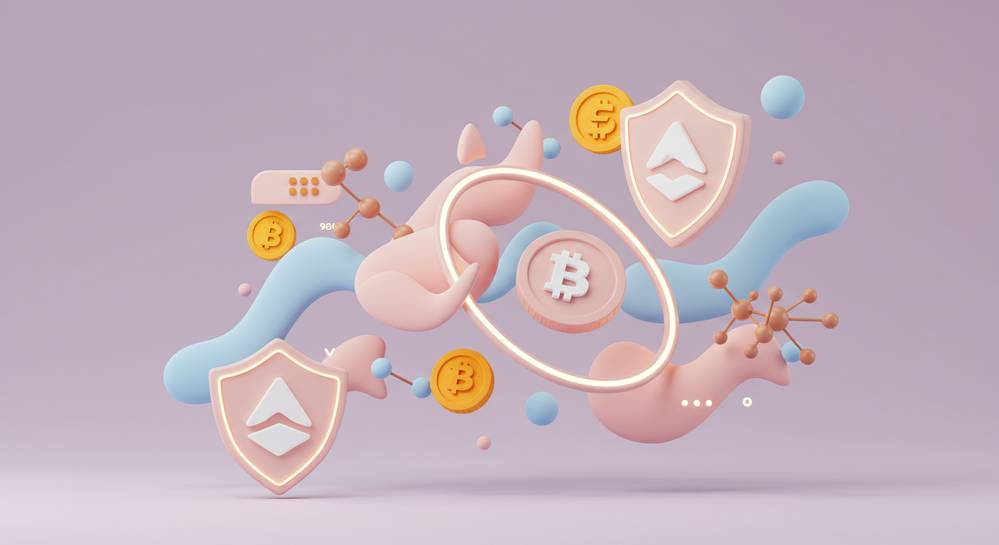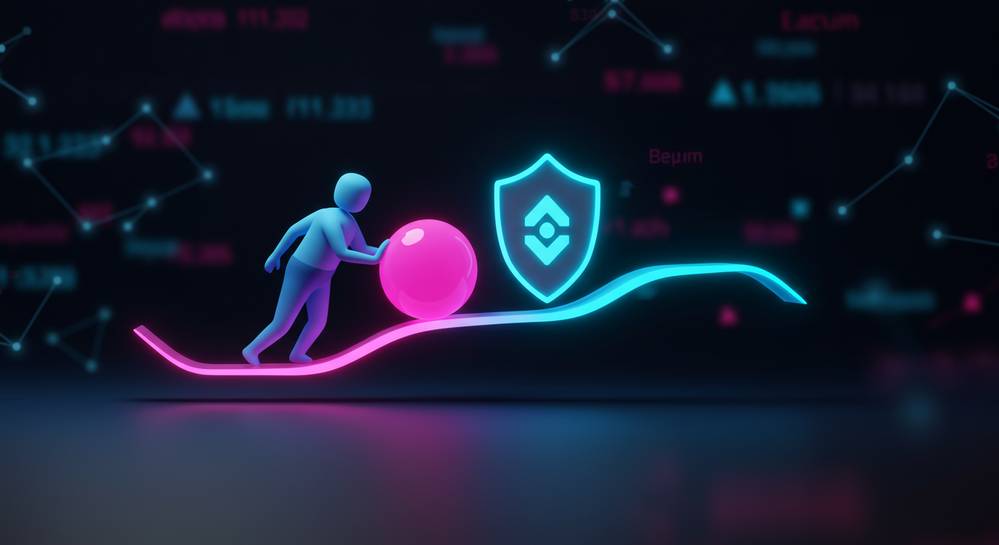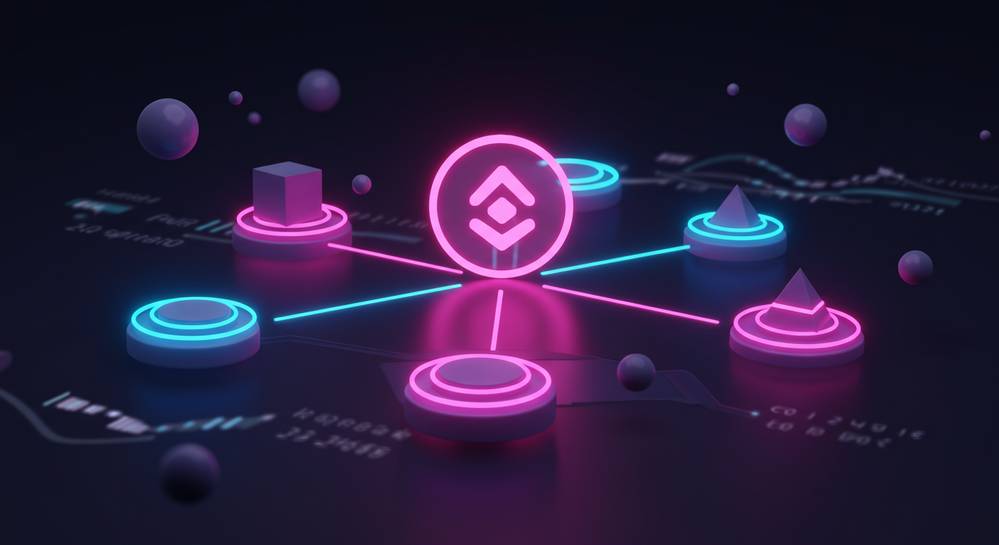Ever wonder what is an altcoin? It’s the ‘other fish’ in the vast crypto sea, with Bitcoin as the ‘big shark’. Let’s dive in! With Bitcoin taking most headlines, it’s easy to overlook the bustling world of altcoins. These digital coins are growing fast and shaping the future of trading. They’re not just Bitcoin’s understudies—they have unique perks and quirks. In this post, I’ll walk you through the altcoin basics. You’ll get to know top altcoins and see how they stack up against Bitcoin. Whether you’re thinking of investing or just curious, grab a cup of coffee and let’s explore this crypto frontier together.
Understanding Altcoins: The Basics
Defining Tokens and Altcoins
Think of cryptocurrency like a tree. Bitcoin was the first seed that grew. Now, there are many branches. These branches are what we call “altcoins”. Altcoins stand for “alternative coins”. They are all the coins you find in the crypto world, except for Bitcoin.
A “token” is a special kind of virtual coin. It can be used for more than just buying and selling. Tokens might give you a say in how a project builds. Or, they might let you use software, like playing a game.
Introduction to Cryptocurrencies Beyond Bitcoin
We heard of Bitcoin, sure. But what about the other kids on the block? There’s a whole world of cryptocurrencies beyond Bitcoin. Bitcoin started the story, but others are adding exciting chapters.
These other coins are very different from Bitcoin. Each one has its own story. Ethereum, for example, is like a big computer for the world. It can handle not just money, but all sorts of computer jobs.
We call the many types of crypto “cryptocurrency types”. It sounds hard, but it’s just the kinds of coins out there. These types include coins like Litecoin, which is like Bitcoin but faster. Or Ripple, which banks like for moving money around the world quick.
Each kind lives on a blockchain, a list of all trades that’s safe from cheats. Different altcoins use different blockchains. And each blockchain works a bit differently.
Now, why should we care about these other coins? They give us choices. Maybe we want to send money fast. Or we might want to help a new project grow. Or we want to keep our computers busy by “mining” coins, which means they help keep the coin’s blockchain going.
Some coins are for saving, and others are for using. Some are even tied to real things, like dollars or gold. This is what we call “crypto market variety”.
If we want to dive into altcoin trading, we need to learn how they are alike or different from Bitcoin. For example, how money they are worth all added up. This is called “altcoin market capitalization”.
But we’ve got to be careful. With so many coins, there’s a lot to learn. And rules for these coins can change. This is what we mean by “altcoin regulations”.
Understanding this world is like being a treasure hunter. We discover, we learn, and maybe we find some riches. But it’s not just about money. It’s about being part of new ways to do things. This is what “navigating the altcoin space” means.
So, let’s keep our eyes open as we learn about altcoins. It’s a lot to take in, but there’s fun in figuring it out. And who knows? Maybe we’ll find the next big coin that changes the game!
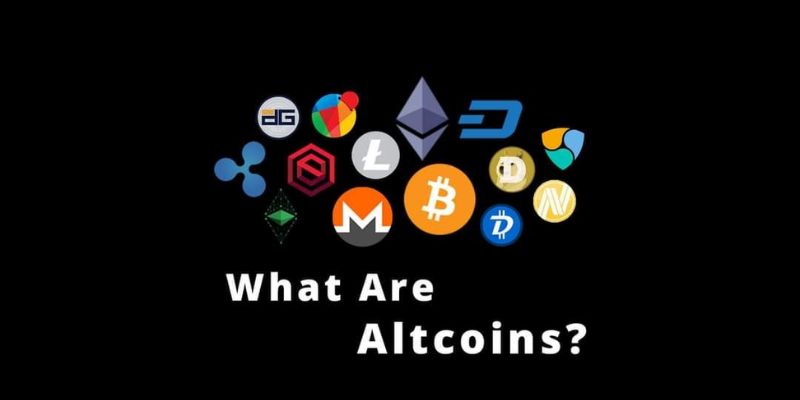
The Altcoin Landscape: Variety and Characteristics
Popular Altcoins and Their Unique Features
You’ve heard of Bitcoin, but what’s an altcoin? Think of it as a digital money cousin. Altcoins are cryptocurrencies that are not Bitcoin. They are like new flavors of ice cream. Let’s dig into some you might know. Ethereum, for example, is more than money; it’s like a big computer for apps that don’t need middlemen. Ripple, another kind, helps money fly fast across borders. Litecoin? That’s like Bitcoin but lightspeed. Many more are out there, each with its twist on digital cash.
Blockchain Assets Other Than Bitcoin and Their Platforms
Every altcoin runs on a blockchain. It’s like a choo-choo train for data that nobody owns, and it keeps going. They each have their own platform, kind of like playgrounds where different games are played. Beyond Ethereum, there’s Cardano, a place with a big book of rules to improve itself. Solana brings in a super-speedy blockchain that promises to handle lots. These platforms aren’t just for sending coins; they’re where all sorts of digital magic happens, like art turning into a one-of-a-kind online asset.
Understanding the altcoin world can be a blast, filled with new tech and ideas. Just remember, each coin has its story and job in the crypto world. From smart contracts to fast payments and more, altcoins are expanding what we can do with blockchain. But also, take care. Investing is risky, and the crypto space is no walk in the park. Before you dive into altcoin trading or investing, make sure you learn the ropes. It’s a journey worth taking for the brave and the curious who seek the treasure of knowledge in the land beyond Bitcoin.
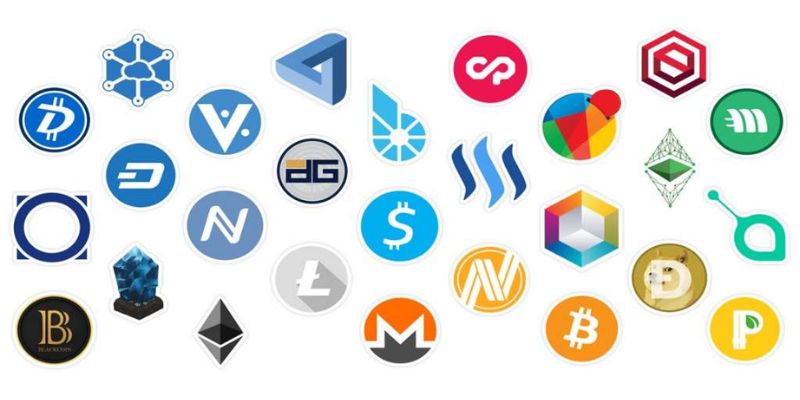
Investment Insights: Altcoins vs. Bitcoin
Altcoin Market Capitalization and Trading Dynamics
The world of cryptocurrency is vast. It’s not just about Bitcoin. There are other digital currencies, called altcoins. “What is an altcoin?” you may ask. Simply, altcoins are digital currency alternatives to Bitcoin. Each one has its own unique features. They use technology like Bitcoin but do something different with it. Many use a system called blockchain to record all the transactions.
Now, let’s get into something called market capitalization, or market cap. This is how much all the coins together are worth. To find it, we multiply the current price by the total number of coins out there. Bitcoin’s is the biggest. But the altcoin market cap is growing fast too! As people learn about altcoins, they start to trade them, just like with Bitcoin. This trading happens on places called cryptocurrency exchanges.
It’s like a big, online marketplace for all kinds of cryptocurrencies. So, when you hear about altcoin trading, this is what’s going on. Prices move up and down, based on how much people want them. This can be tricky. But it can also be a chance to make money, if you know what you’re doing.
Risks and Opportunities in Altcoin Investment
Now let’s talk risks and how to win with altcoin investment. Some say, “no risk, no fun.” But let’s be real, losing money is not fun. Altcoins can be risky because prices can swing wildly. It’s like being on a roller coaster. One minute you’re up, the next, you’re down. And some altcoins are new, which makes things even more uncertain.
But, where there’s risk, there’s also the chance for reward. These swings can let smart investors buy low and sell high. And there are so many altcoins, it’s like a treasure hunt to find the next big one. They have cool features. Some let you make smart contracts, others give you privacy. It’s not just about cash. They can change the way games, apps and businesses work.
Investing in cryptocurrencies beyond Bitcoin means you spread your chances. It’s like not putting all your eggs in one basket. You could win big with the right pick. Just remember, with altcoins, there’s a lot to learn. And the rules are always changing. It’s good to keep learning and keep your eyes open. Always think about what could go wrong. That way, you’re ready for the ups and downs.
So, that’s altcoins for you. They’re exciting, full of chances, but also risky. If you’re thinking of going into the altcoin market, just be sure to tread carefully. Get to know the ropes. Use your head. And maybe, just maybe, you’ll find yourself winning in the world beyond Bitcoin.

Future of Altcoins: Innovation and Regulation
Emerging Blockchain Innovations and Impact on Altcoins
The altcoin world is fast-paced. It’s full of new tech, much like video games. Just when you learn one, a new one pops up. Take Ethereum for instance. It changed the game with “smart contracts.” These are like regular contracts but they run on the blockchain. It’s not just talk, these programs do stuff when conditions are met, without any person in the middle.
Every day, new altcoins show up. Each one has a new trick up its sleeve. Some offer faster payments. Others promise more privacy. There’s even one, called Solarcoin, that rewards you for using solar energy. They’re like different flavors in a giant ice cream shop. Some we love right away, others we learn to like.
These new altcoins keep Bitcoin on its toes. Imagine a world where only one ice cream flavor existed. That would be dull, right? Bitcoin is great, but altcoins make it a party. They push Bitcoin to get better and offer us more choices.
In the end, altcoins stir up the pond. They bring new ideas, and keep things fresh. They make us think, “What will they come up with next?” And that’s what keeps things exciting. It isn’t all about fast cash – it’s about fast ideas, and how they can change our economy, and our lives.
Understanding Altcoin Regulations and Compliance
Let’s talk rules. Just as you can’t drive a car without obeying traffic laws, you can’t trade altcoins without knowing the rules. Investors ask, “Is this safe? Legal?” And that’s smart. With altcoins, it’s like the Wild West. Each place has its own laws, and they change all the time.
In the USA, the SEC watches over things, making sure no one plays foul. They keep an eye out for scams and bad plays. In other places, like South Korea or Japan, rules can be strict. They want to know everything: who you are, what you’re doing, and why. It’s all for good reason. They want to stop bad guys, protect your money, and keep everything fair.
But sometimes, rules can be hard to follow. They can be as tricky as a maze. For a beginner, it’s easy to get lost. That’s why it’s key to learn about altcoins and the rules they come with. Think of rules as a map that guides you through the altcoin world. It’s important to learn this map, so you don’t hit a dead end.
Now, some people worry that too many rules will kill the fun. And they have a point. Too many rules can be like a heavy rain on our parade. But remember this: Rules can also build bridges. They can make more people trust altcoins. That can mean more friends at the party.
For now, keep this in mind: Altcoins are exciting, like a good mystery book. You never know what turn the next page will take. But as you explore, remember to play it safe. Learn the rules of the game. It’s the best way to have fun and avoid trouble. Welcome to the adventurous world of altcoins – let’s navigate it together, but let’s do it the right way!
We’ve covered a lot in this guide— from what altcoins are to the exciting world beyond Bitcoin. You now know the key players on the altcoin field and what makes them special. We also dived into how these digital coins stack up against Bitcoin in the investment game, weighing both risks and wins.
Looking ahead, altcoins keep evolving with new tech, and rules are catching up too. I believe staying informed is your best bet. Keep what you’ve learned here in mind as you explore the dynamic terrain of altcoins. Ready or not, the future of money is changing fast, and you’re part of it!
Q&A :
What Exactly is an Altcoin in Cryptocurrency?
Altcoins, or alternative coins, are a term used in the cryptocurrency world to describe all cryptocurrencies other than Bitcoin. They operate on the same principle of decentralized ledgers and share many features with Bitcoin, but each one offers different functionalities, underlying philosophies, or technological innovations.
How Do Altcoins Differ From Bitcoin?
Altcoins were created to improve upon Bitcoin or to serve different market needs. They differ from Bitcoin in various ways like transaction speed, distribution method, or hashing algorithms. Some popular examples include Ethereum, Ripple (XRP), and Litecoin, each of which has its unique features distinguishing it from Bitcoin.
Are Altcoins a Good Investment Compared to Bitcoin?
Investing in altcoins can be riskier but potentially more rewarding than Bitcoin due to their volatility and relatively low market capitalization. Each altcoin has its own potential for growth based on its technology, market adoption, and community support. It’s essential to conduct thorough research and consider your risk tolerance before investing.
Can Altcoins Be Used Like Regular Money?
Some altcoins are designed to be used as digital currency and can be used like regular money for transactions and trades. However, their acceptance varies, and they may not be as widely accepted as Bitcoin. The aim of many altcoins is to achieve Bitcoin’s goal of becoming a widely accepted digital currency.
What Are the Risks Associated with Trading Altcoins?
Trading altcoins involves several risks, including regulatory risk, technological risk, market risk, and liquidity risk. Many altcoins have a smaller market cap and can be more susceptible to market manipulation. Additionally, as the technology is relatively new, it’s vulnerable to hacks, and regulatory changes can greatly impact an altcoin’s value.

